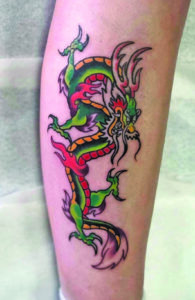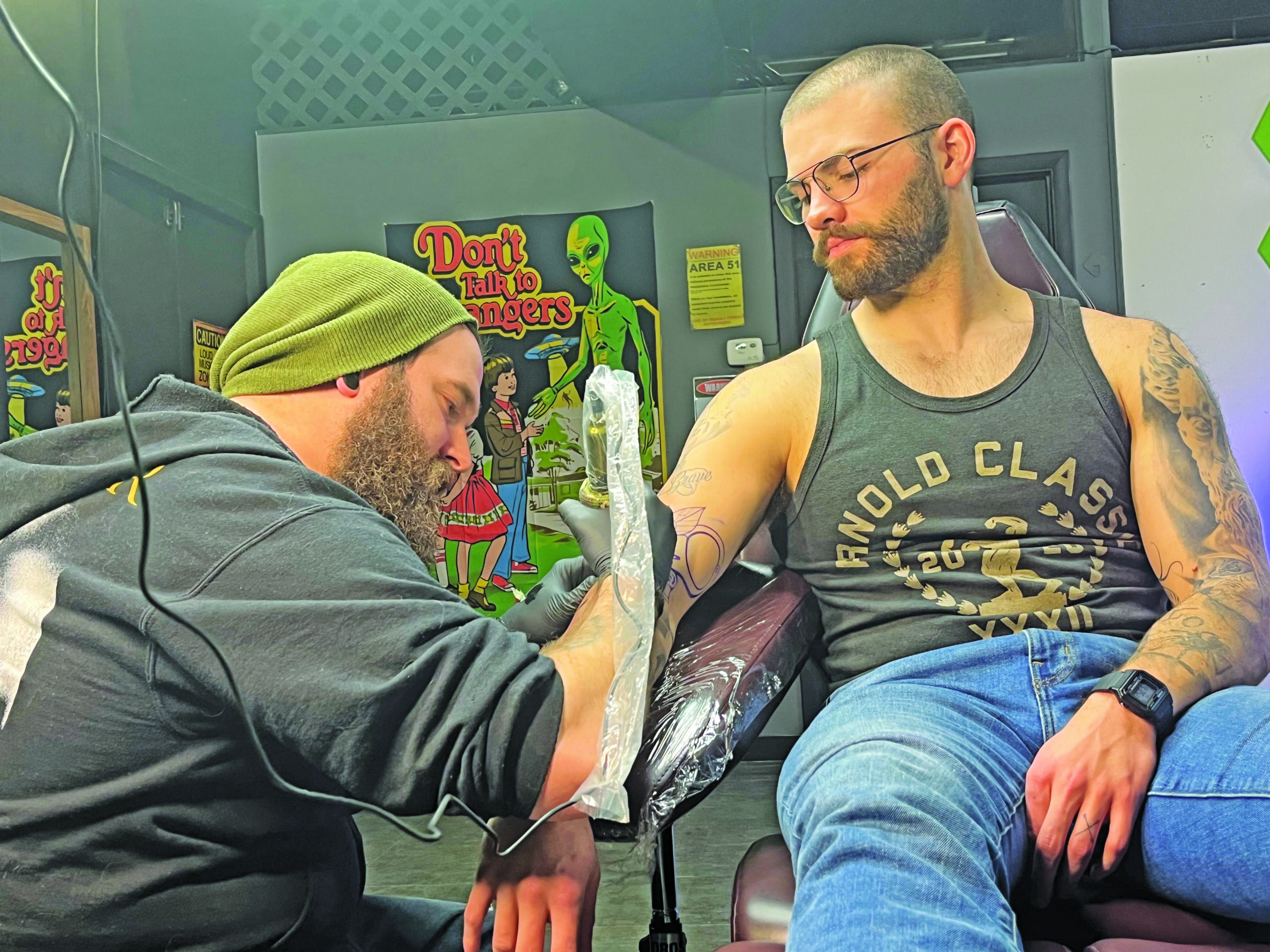Even the most talented tattoo artist can be a danger to their customers if they don’t maintain a clean and safe environment.
The Mayo Clinic defines a tattoo as “a permanent mark or design made on your skin with pigments inserted through pricks into the skin’s top layer.” Anything that pricks the skin can carry infection.
Local tattoo artists Blair Reid and Zach Lowhorn say that it’s pretty much on individual shops to be sure they are safe. Both of them learned that during their apprenticeships, served before opening their own shops.
Reid, owner of Tarot Tattoo in Richmond, said the quality of an apprenticeship can make all the difference. “A studio would rather mentor someone who knows absolutely nothing about tattooing with good artistic potential than try to re-educate someone who has already picked up bad habits by tattooing without mentorship,” she said.
Reid has been tattooing professionally for seven years. She worked “relentlessly” on her art until there was an opportunity to apprentice.

Tattooing is usually learned through an apprenticeship of up to two years, working with people already in the field. She researched shops that had reputations for doing good artwork and being safe. She served her apprenticeship at On Que Tattoo and Aesthetic Artistry.
Zach Lowhorn, owner of Alien Earth Tattoo in Cambridge City, talked about his unexpected experience tattooing. He never planned to become a tattoo artist, but a persistent friend persuaded him to try it.
“I started my apprenticeship when I was 26,” he said. “Although I didn’t want to at first, I really thank him now.”
Lowhorn was inspired to become a tattoo artist because he wanted the freedom of working for himself.
Reid had a similar goal, but said that freedom comes with a price.
“My best advice to anyone thinking about wanting to tattoo for a living is to take it seriously,” she said. “This is the best job in the world if you don’t mind drawing and drawing and redrawing and working 24/7. There is no paid time off, you won’t ever get a free weekend, sick days come out of your own pocket.”
Lowhorn has been tattooing for four years. He served an apprenticeship at Underdogs Tattoo Gallery in New Castle and opened Alien Earth Tattoo last May.
Both artists acknowledge the importance of keeping a clean shop. Inserting pigments through the skin’s top layer can be hazardous. Part of the skin’s function is to keep infections out of the body.
“Safety is everything,” Lowhorn said.
That’s why tattoo artists commit many hours to keeping their shops and equipment sanitary and safe. Without proper cleaning, tattoos can get infected, create rashes, or become diseased.
Indiana does not require a license or registration to tattoo someone else. The state does require a permit to open a shop. It requires tattoo artists to complete a bloodborne pathogen certification program and to have a bloodborne pathogen exposure control plan.
According to the Indiana Department of Health, “Yearly training on bloodborne pathogen disease transmission for tattoo artists, body piercers, and anyone who has contact with blood at the facility is a requirement of this rule.”
The state Health Department relies on local departments, such as the Wayne County Health Department, to enforce the statewide standards.
According to Devon Preston, associate editor of Inked Magazine, some warning signs of unclean tattoo shops include having no bloodborne pathogens certificate visibly displayed, not using distilled water, storing needles out in open, reusing a needle, not using pre-packaged needles or disposable cartridges, reusing gloves or using damaged gloves, using expired ink, not cleaning after clients or if the shop is visibly dirty.
Reid said her career has its rewards.
“This is the best job in the world if you already have the compulsion to create art every day, and the self-control and discipline to handle your own schedule.”
Emily Lightfield is a student intern at the Western Wayne News.
A version of this article appeared in the March 15 2023 print edition of the Western Wayne News.

